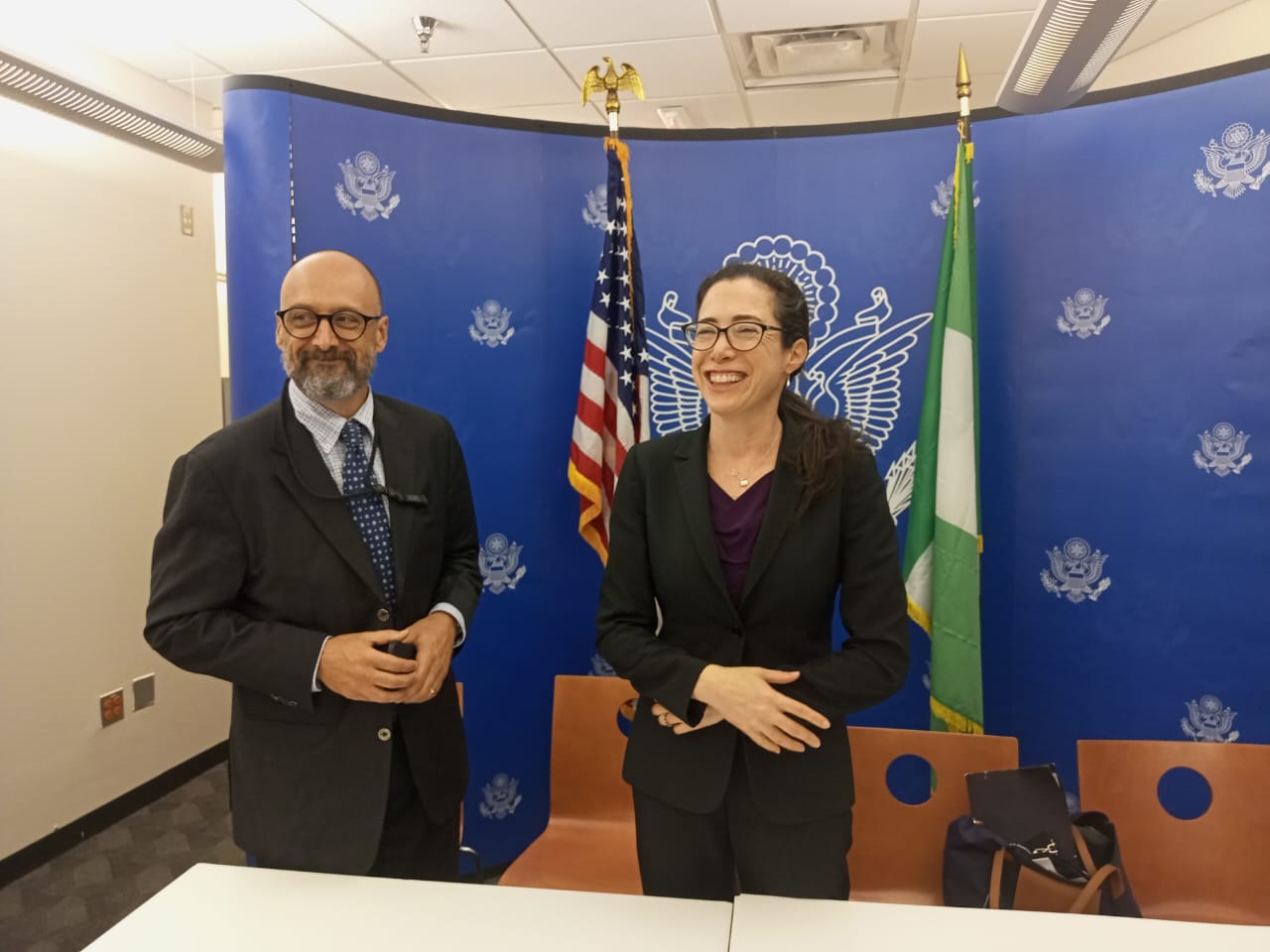US, Nigeria working to maximise benefits of AI in military operations
The United States (US) is working with Nigeria to design the best framework for applying Artificial Intelligence (AI) in military operations. Mallory Stewart, the Assistant Secretary for the Bureau of Arms Control, Deterrence, and Stability (ADS) at the U.S. Department of State, disclosed this during a roundtable session with journalists in Abuja on Wednesday. While […]

(R) Mallory Stewart, the Assistant Secretary for the Bureau of Arms Control, Deterrence, and Stability (ADS) at the U.S. Department of State
The United States (US) is working with Nigeria to design the best framework for applying Artificial Intelligence (AI) in military operations.
Mallory Stewart, the Assistant Secretary for the Bureau of Arms Control, Deterrence, and Stability (ADS) at the U.S. Department of State, disclosed this during a roundtable session with journalists in Abuja on Wednesday.
While in Nigeria, she met with representatives from ECOWAS, the Ministry of Foreign Affairs, the Ministry of Defense, civil society and the National Security Adviser.
“Our bureau is here to focus on, which is hearing the Nigerian voice, hearing the concerns and the elements that we can work together on to support stability and security across the board.
- Hardship: We are all hungry, let’s go back to farm, Rep tells Nigerians
- Food security: Caribbean states seek partnership with Nigeria
“Some of the important conversations we were able to talk about was how we can work to hear the Nigerian interest in a political declaration that the US government has been working with right now 55 other countries to agree upon the responsible uses of AI in the military context,” she said.
Stewart added that her bureau was aiming to design the principles of using AI in a manner consistent with international law, recognising inherent human bias and recognising that AI systems upon AI systems could lead to greater risks.
“One of the ways we’ve seen artificial intelligence utilised in the US has been to try to maximise capabilities and hopefully lead to benefits in our systems. And yet, we’ve learned through experience that there’s been challenges and risks that can be brought in, especially in the military context.
“And so the effort through our political declaration process is to hear from as many countries as possible that are at the stage of working in artificial intelligence to their military, are trying to maximise the benefits of artificial intelligence, as we’ve tried to do domestically, but working with those countries to see how we can minimise the risks so that others don’t have to learn some of the hard lessons we’ve learned.
“So we’re working with 55 countries, including several African nations. We hope to expand that to include the voice of Nigeria in leading the regional appreciation for the challenges that incorporating AI may bring,” she said.
